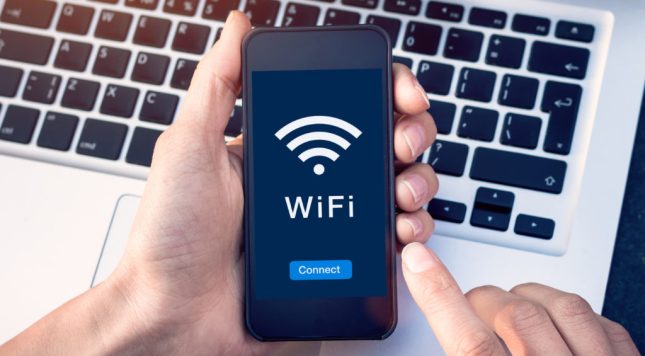Internet access has become an important aspect of our daily lives, almost as important as light and heat. So, when people are on a travel trip, one of the first things they ask about their hotels is the availability of free wifi. For many people, free wifi is more important than room service, the location of the hotel, or even a good breakfast. A study confirms this.
This makes sense when you consider how massive roaming charges could be abroad. But it’s not all rainbow and sunshine with public networks. There are risks to connecting and doing business over them. All your devices – computers, tablets, and smartphones – are at risk.
Continue reading to learn more about public wifis and the risk associated with using them.
Are Hotel Wifis Secure?
Hotel wifi security tends to be poorly protected. The reason for this is obvious – the management is all about making your stay comfortable. Wifi security isn’t exactly a priority. To them, their job is to provide wifi. Whether the wifi is secure enough is another matter altogether.
Many hotels create passwords (mostly weak passwords) for each room. Some don’t even bother with password protection and leave the wifi open to all. There is also the problem of weak or no encryption with public networks. And all these put your personal data at risk.
Apart from the poor security of hotel wifis, you should also be wary of fake hotspots. Scammers set up networks that look similar to the hotel’s wifi. Unsuspecting guests connect to the fake hotspot where the scammers steal their private data. So, one of the first things you should do when connecting to hotel wifi is to confirm the identity of the network with a staff member.
Another threat to your privacy on a public network is the ability of a cybercriminal to eavesdrop on your internet traffic. They can do this by inserting themselves as a secret intermediary (middleman) between your device and the connection point. And any information you exchange over the network passes through the hacker.
There is also the problem of malware. Hackers distribute malicious files to users on hotel wifis through emails that are highly convincing. Clicking on them downloads the malware on your device putting your private data at great risk.
So What Happens If You Use Unsecure Hotel Wifi?
Here are examples of how your private data can become compromised over an unsecured public network:
Stolen Financial Information
Financial gain is one of the biggest motivations of cybercriminals. An unsecured public network gives them the avenue to achieve this by stealing credit card numbers and bank account information. They do this by creating fake hotspots, tricking you to download malware on your device, or intercepting your internet traffic.
NEVER use your credit cards on public wifi, shop online, or check your bank account balances. You never know if there is a cyber thief lurking around to steal your financial information.
Eavesdropping on Your Online Activities
The emails you send, videos you watch, and the websites you visit on public wifi may not be private as hackers can intercept your online activities. As a result, don’t visit any sensitive sites, watch any embarrassing videos, or send important emails while connected to public wifi.
Stealing Your Login Information
Any username and password you enter while using public wifi is at risk of exposure to cybercriminals. They can steal your login credentials and access your accounts later. Your social media accounts, bank accounts, retirement accounts, and credit card provider websites are specifically targeted by cybercriminals.
Infecting Your Computer With Malware
We already discussed how hackers can use malware to access your private data. They trick you into downloading this malware. Also, don’t enable file-sharing if you are using a public network.
So How Do You Stay Safe Over Hotel Wifi?
The risks associated with hotel wifi don’t mean you should stay away from them. Rather, it’s to educate you so you can appropriate precautions when using public wifi and also to be careful about the kind of things you do over the network.
Below are ways you can minimize risks while using public wifi:
Use A VPN
A Virtual Private Network (VPN) creates a sort of tunnel through the internet and provides an encrypted connection. In short, a VPN allows you to access a public network as if you are connected to a private network. A VPN will cloak your IP address and encrypt your communications over the network.
It’s easy to get started with VPNs. Services such as SurfShark have apps for various platforms – Android, iOS, Windows, Linux, FireTV, and macOs. Visit the Surfshark page to find the dedicated software for your device.
Connect to Secure Sites
It’s important you are connected to secure sites when using public wifi. You can know if a site is secure by looking for https in the address bar. Secure sites have https and indicate that data transfer between a web browser and a web server is secure. This offers some level of protection on hotel wifi.
Turn Off Sharing
File sharing is only useful on your private home or office network. On a public network, it allows hackers to download your files and send their own (often malicious) to your devices.
Other useful tips include
- Avoid logging in to your bank or office account on public wifi.
- Don’t open any links or attachments you receive on a public network.
Conclusion
The bottom line is that there are some risks associated with using a hotel wifi/public network and you can significantly reduce these risks by the simple steps explained above. Public wifis are important. We doubt you wouldn’t want to use them on your travel trips. But you need to take proper precautions to protect yourself.

